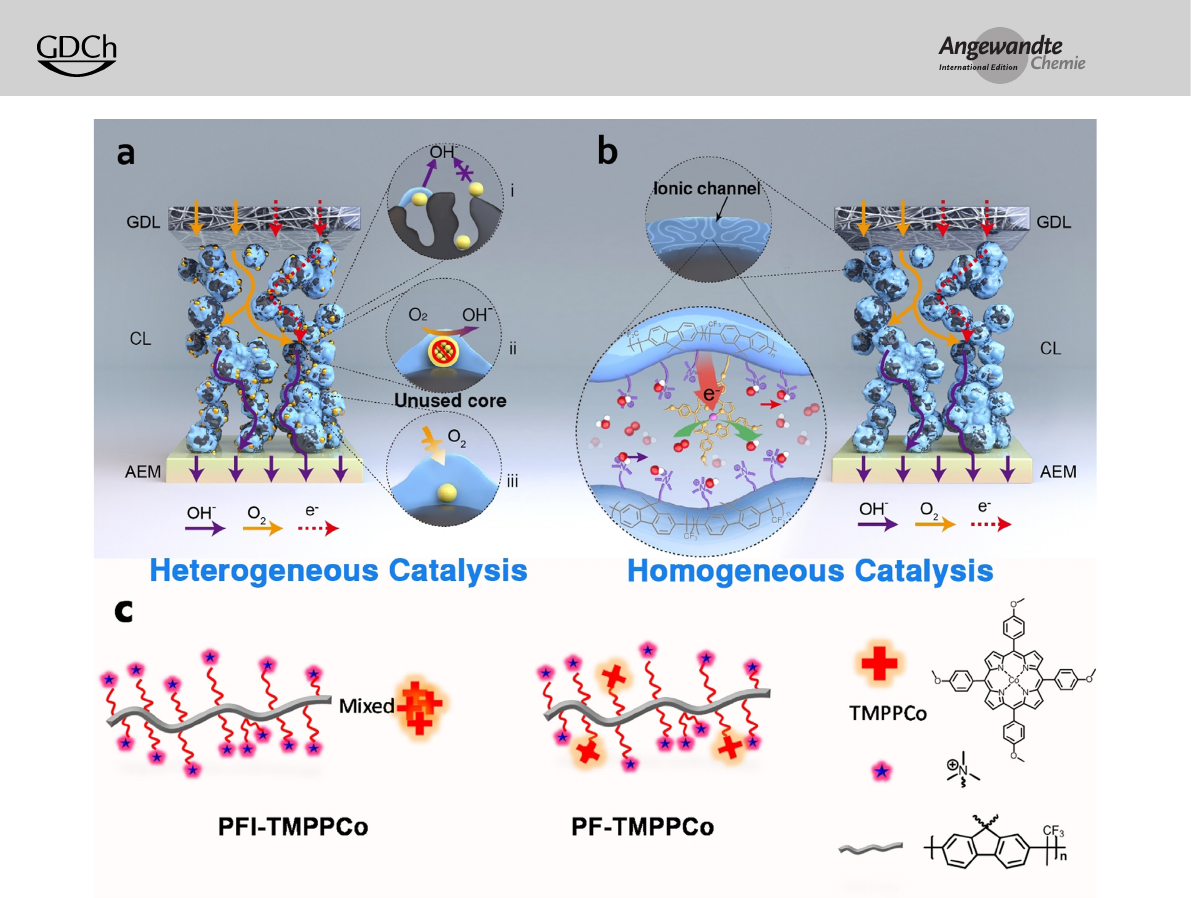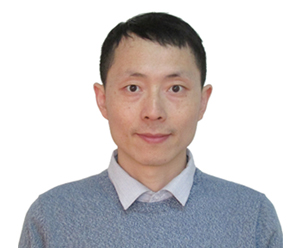March 10, 2021
A New Catalyst Layer Structure in Fuel Cells
Recently, Dr. Qinggang He's research group made a progress in catalyst layer structure for anion exchange membrane fuel cells. These studies have been published in Angewandte Chemie International Edition.
In anion exchange membrane fuel cells, catalytic reactions occur at a well-defined three-phase interface, wherein conventional heterogeneous catalyst layer structures exacerbate problems, such as low catalyst utilization and limited mass transfer. We developed a structural engineering strategy to immobilize a molecular catalyst tetrakis(4-methoxyphenyl)-porphyrin cobalt(II) (TMPPCo) on the side chains of an ionomer (polyfluorene, PF) to obtain a composite material(PF-TMPPCo), thereby achieving a homogeneous catalysis environment inside ion-flow channels, with greatly improved mass transfer and turnover frequency as a result of 100%utilization of the catalyst molecules. The unique structure of the homogeneous catalysis system comprising interconnected nanoreactors exhibits advantages of low over potential and high fuel-cell power density. This strategy of reshaping of the catalyst layer structure may serve as a new platform for applications of many molecular catalysts in fuel cells.

Angew. Chem. Int. Ed., 2021, 60, 4049–4054

Biography
Dr. Qinggang He is a Principal Research Scientist at College of Chemical and Biological Engineering of Zhejiang University (ZJU CBE).
Prior to joining ZJU in 2015, he was a research assistant at Department of Molecular and Medical Pharmacology, UCLA. Before that, he was also a research associate at Environmental Energy Technologies Division, Lawrence Berkeley National Lab. He received his PhD in Physical Chemistry from Northeastern University(USA) in 2010.
To learn more about this paper, Go to https://onlinelibrary.wiley.com/toc/15213773/2021/60/8.
To know more about Dr. Qinggang He, Go tohttps://person.zju.edu.cn/en/qingganghe#0.


